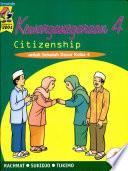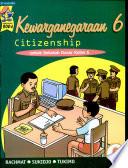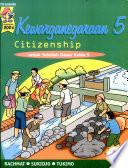
Citizenship
"Citizenship has become one of the most important political ideas of out time. It is an idea that at once recognises the individual's entitlement to rights and the collective responsibilities on which stable governance rests. In this overview of the subject Keith Faulks explores citizenship's historical and conceptual origins, its contemporary dilemmas and its emancipatory potential for the future."--BOOK JACKET.Title Summary field provided by Blackwell North America, Inc. All Rights Reserved
- ISBN 10 : UOM:49015001149294
- Judul : Citizenship
- Pengarang : Geoff Andrews,
- Kategori : Political Science
- Penerbit : Lawrence & Wishart Limited
- Bahasa : en
- Tahun : 1991
- Halaman : 270
- Google Book : http://books.google.co.id/books?id=0-MPAQAAMAAJ&dq=intitle:Citizenship&hl=&source=gbs_api
-
Ketersediaan :
"Citizenship has become one of the most important political ideas of out time. It is an idea that at once recognises the individual's entitlement to rights and the collective responsibilities on which stable governance rests.









